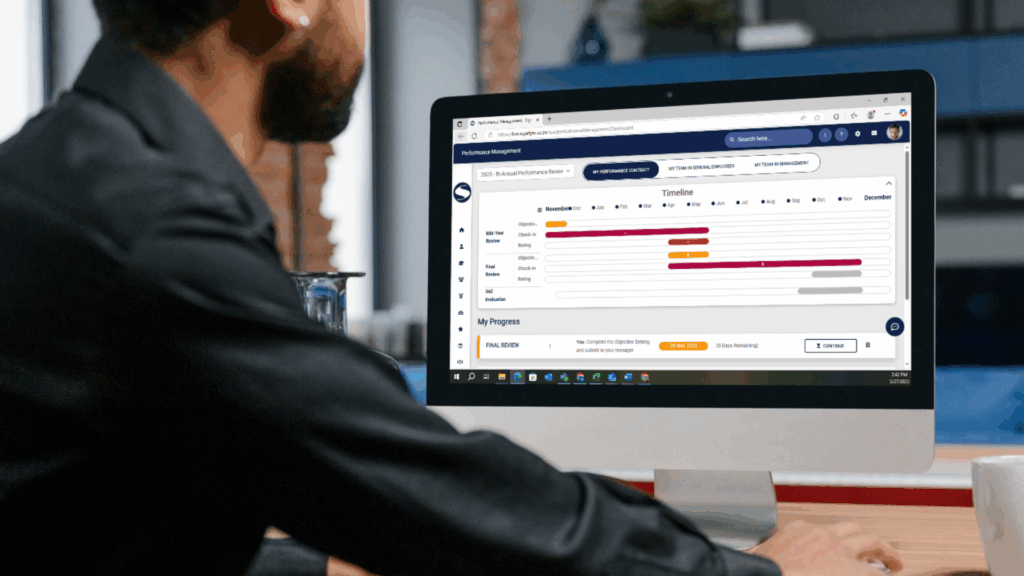In Part I: Embracing the Skills-Based Approach in Modern Talent Management, the discussion centred around how skills have become the new currency in an ever-evolving workforce. Organisations are increasingly recognising that adaptability and capability hold greater value than traditional job titles, prompting a strategic shift towards a skills-based approach. This transition not only broadens talent pools but also drives innovation, enabling businesses to align with the demands of a rapidly changing world.
However, moving towards a skills-focused model is not without its challenges. Addressing these obstacles requires thoughtful strategy, strong leadership, and a commitment to adaptability.
In Part II, the focus shifts to navigating these complexities. Hence, this article will explore practical insights and strategies for overcoming the roadblocks associated with the Skills-Based Shift.
Addressing the challenges
As organisations embrace a skills-based workforce, the following challenges are to be expected. These obstacles can be thoughtfully navigated by Signify’s Talent Management System – a modular system that could be adapted to your organisation’s unique needs.
Identifying Skills
Understanding what skills are essential to meet current and future business needs is a complicated process. The key to overcoming this challenge lies in skills mapping. This process involves identifying the essential skills required for each role, evaluating performance criteria, gathering input from managers, and engaging with stakeholders across various levels. By taking a comprehensive approach to skills identification, businesses can create a clear picture of the talent they need to remain competitive.
The Signify Job Profiler and Competency Analyser enables competency mapping and gap analysis, aligning job profiles with strategic goals. Through integration with other Signify products, organisations can optimise recruitment, career and succession planning, and training programs, while fostering a culture of continuous learning and development.

Change Management
Resistance to change is also a natural barrier when moving towards a skills-based workforce. Employees and management alike may feel threatened by the shift away from traditional job descriptions and roles. Overcoming this requires strategic change management.
To reduce resistance, it is essential to articulate the connection between the transition to a skills-based workforce and the overall business objectives – improved employee performance, increased diversity, and reduced turnover. By demonstrating how this shift benefits both the individual and the organisation, leaders can cultivate buy-in and foster a more accepting attitude towards change.
Signify also offers change management services with the implementation of the Talent Management system. We provide training to system administrators, but can also provide training to both managers and end-users, ensuring a smooth transition for the selected modules.
Performance Management
Traditional methods often assess worker outcomes and goal achievements, and although this is important, the skills themselves can also be emphasised. To address this, performance management frameworks should evolve to place equal emphasis on skill development. By incorporating skills/competency assessments into performance reviews, organisations can better track employee growth and provide targeted feedback that fosters continuous improvement. This shift encourages a more holistic approach to evaluating talent and supports long-term career development.
The Signify Performance Management module streamlines evaluations with goal setting, progress tracking, and structured reviews aligned with organisational goals. Ongoing feedback, customisable criteria, and powerful analytics enhance transparency, while automated reminders keep processes on track. Its user-friendly interface empowers organisations to drive performance and foster growth.

Choosing the right Mix of Technology
With a variety of tools and platforms available, selecting one that integrates seamlessly with existing systems is crucial. The solution lies in adopting an all-encompassing platform that allows for third-party integration. This ensures that your talent management ecosystem remains cohesive and adaptable as your organisation evolves, avoiding the inefficiencies that come with siloed systems.
The integration capability of the Signify system allows for seamless synchronisation of people data with third-party payroll or HR systems. By eliminating manual data entry and providing real-time or scheduled data exchange, organisations can streamline their HR and payroll processes, reduce administrative burdens, and improve data accuracy.
Future-proof your Organisation
Embracing a skills-based workforce is not just a trend – it’s a strategic imperative. By prioritising skills over titles, organisations unlock adaptability, diversity, and long-term growth. With the right approach and the right tools, such as Signify’s Talent Management System, businesses can future-proof their teams, driving sustained success in an ever-evolving world.



